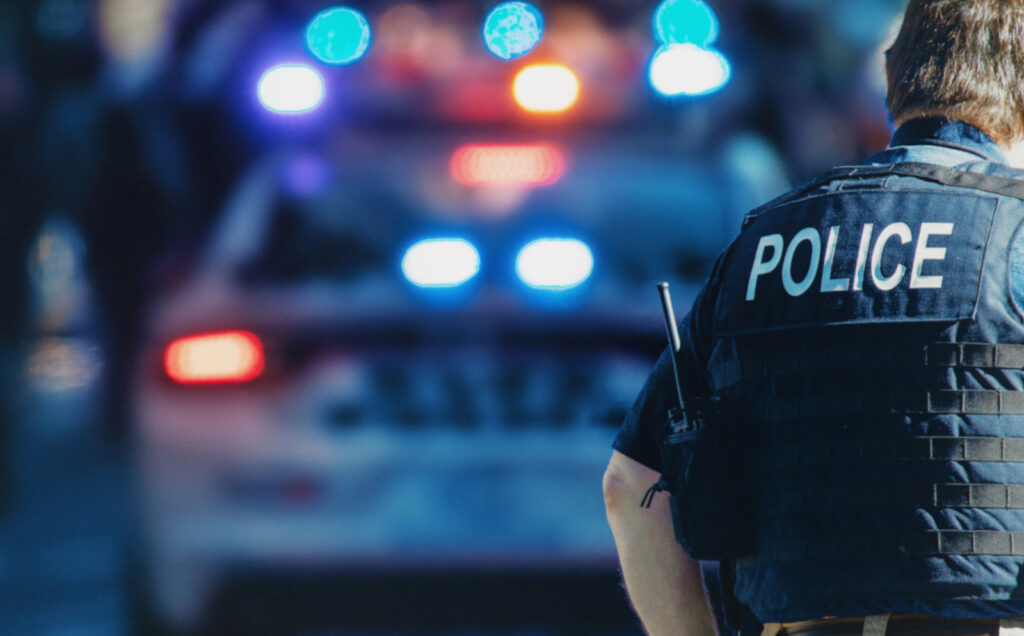By Jeffrey A. Roberts
CFOIC Executive Director
Enacted five years ago following the killings of George Floyd in Minneapolis and Elijah McClain in Aurora, Colorado’s Law Enforcement Integrity Act has made it easier to obtain police body-worn camera footage. But some barriers to access remain.
Although the statute requires the prompt release of “all unedited video and audio recordings” of incidents in which there is a complaint of officer misconduct, agencies have not fully complied with some requests, interpreting aspects of the law differently than do attorneys for news organizations and the public.

Certain requests for footage have been denied outright — even though officers shot and killed people — because there was no official complaint of misconduct. Other unfulfilled or partially fulfilled requests have prompted litigation.
More than a year after Aurora police shot and killed 37-year-old Kilyn Lewis, an unarmed man sought on a warrant for attempted murder, an Arapahoe County District Court judge ruled in June that Aurora police must give 9NEWS more than just the “trimmed” video clips of the incident it had released. The Law Enforcement Accountability Act “is clear that the entirety of the body worn camera footage in this instance must be provided upon request,” the judge wrote.
Earlier this month, two years after Lakewood police shot and killed a 17-year-old robbery suspect, the Colorado Court of Appeals decided that Scripps News is entitled to blurred video of the incident, despite the city’s contention that the footage is protected from disclosure by the Colorado Children’s Code as a juvenile record.
Still to be resolved by the Court of Appeals is another critical question of access: Can law enforcement agencies charge hundreds or thousands of dollars to process requests for body camera footage?
In that case, a Boulder District Court judge ruled that the Boulder police department cannot make Yellow Scene Magazine and Jeannette Orozco pay the city $2,857.50 to obtain video of police shooting and killing Orozco’s 51-year-old mother, Jeanette Alatorre, in 2023. “Had the legislature intended for law enforcement agencies to charge a research or retrieval fee in response to an Integrity Act request for BWC footage, it easily could have included such a provision in the Integrity Act,” the judge wrote.
In its appeal of the decision, Boulder argues that because body-worn camera videos are criminal justice records, the Colorado Criminal Justice Records Act permits the city to assess “reasonable fees for search, retrieval and redaction,” including the blurring of footage (allowed under the Law Enforcement Integrity Act if a video “raises substantial privacy concerns”). The judge’s interpretation of the law “would significantly fiscally burden and create an unfunded mandate on local governments,” adds a friend-of-the-court brief submitted by the Colorado Municipal League, Colorado Counties Inc. and the County Sheriffs of Colorado.
But journalists surveyed by the Colorado Freedom of Information Coalition are concerned that a reversal of the Boulder judge’s order would significantly impede public access to police body camera footage, making it more difficult to thoroughly report stories about police accountability. The imposition of high fees, they say, defeats the purpose of the disclosure requirements in the Law Enforcement Integrity Act.
“The arbitrary application of body cam costs has a tremendous impact on our ability to see crucial video in how police respond to situations,” 9NEWS investigative reporter Jeremy Jojola wrote in an email to CFOIC. “Putting a high cost on these videos makes it difficult to see how police interact with citizens, especially if there are multiple body cameras. I’ve had estimates given to me in body cam requests that were very expensive because there is more than one body camera on scene, and I could only afford to pay for one officer’s (point of view).”
One example cited by 9NEWS journalists involved Thornton police shooting and killing 26-year-old Brandon Martinez in May 2024 after he fled from a traffic stop. For a story about Martinez’s mother seeking information about the incident, a reporter requested video from officers’ body-worn cameras. But the news organization couldn’t pay the amount estimated by the police department — $4,479.57 with a deposit of $2,239.79.
Last year, Denver7 paid $123.47 for footage of a Colorado Bureau of Investigation agent using a racial slur during a phone call (he had accidently activated his body-worn camera). While that video was affordable to obtain, investigative producer Joe Vaccarelli told CFOIC “our organization would be extremely hampered by high costs to obtain body-worn camera footage.”
“During my five years at Denver7 on the Investigative Team, we have struggled to pay anything more than a few hundred dollars for open records requests, including for body-worn camera (video),” he wrote in an email. “Having to pay thousands or even hundreds of dollars would essentially eliminate our ability to obtain these public records.”
Denver Post Managing Editor Matt Sebastian told CFOIC the newspaper mostly relies on footage voluntarily released by agencies after police shootings “in large part because it’s expensive to otherwise request.”
The cost of obtaining law enforcement videos also can impede the work of lawyers who represent the families of people killed or injured while in police custody. Last year, the Douglas Sheriff’s Office quoted civil rights attorney Andy McNulty $6,825 to $13,650 for bodycam and jail footage related to the arrest and detention of a man who died in a Douglas County Jail cell. (The Law Enforcement Integrity Act covers other video and audio recordings of incidents in which there is a complaint of misconduct, not just bodycam footage.)
As part of a lawsuit to obtain the records, McNulty cited the Boulder judge’s ruling in the Yellow Scene case. But a Douglas County District Court judge refused to follow the decision because it isn’t binding precedent on other courts, McNulty told CFOIC.
Follow the Colorado Freedom of Information Coalition on X or BlueSky. Like CFOIC’s Facebook page. Do you appreciate the information and resources provided by CFOIC? Please consider making a tax-deductible donation.




